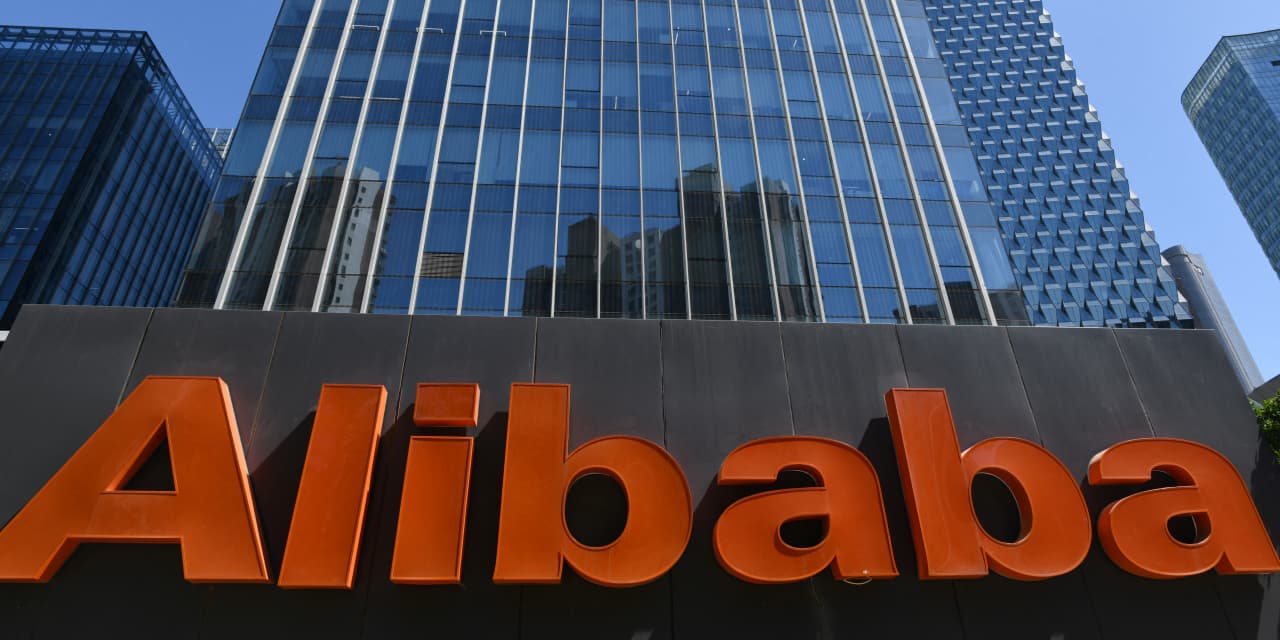Alibaba
stock continues to rise and fall—but mostly fall—on the back of data painting a grim picture of the health of China’s economy. Signs of a Chinese slowdown weighed again on Thursday with a sharp fall in imports and exports in August.
Chinese imports tumbled 7.3% annually last month, official data showed. While there might have been reason to absorb that decline —it marked a moderation from a 12.4% slide in July and beat economists’ expectations of a 11.9% drop—shares in Alibaba (ticker: BABA) were still feeling the pinch. The Chinese tech giant’s stock lost 1.9% in premarket trading, with shares in e-commerce peer
JD.com
(JD) down 2.9%.
Even though the fall in imports—a good read-across for Chinese consumption that drives revenue at the likes of Alibaba—was better than expected, it’s still not good. China’s economy continues to exhibit signs of a slowdown that stimulus, so far underwhelming to investors, seems to be doing little to abate. It isn’t just Chinese companies vulnerable to this trend, with at least 15 global stocks at risk.
And there’s an even wider gloomy take away from China’s latest trade data. Exports fell 8.8% annually in August, moderating from a 14.5% decline in July and better than expectations of a 13.2% drop. It’s a poor sign for China’s economy as well as the world, because it signals that international demand for the many goods produced in China is waning, a fresh indication of global economic pain.
Data can be better than expectations but still bad news.
Write to Jack Denton at [email protected]
Read the full article here




